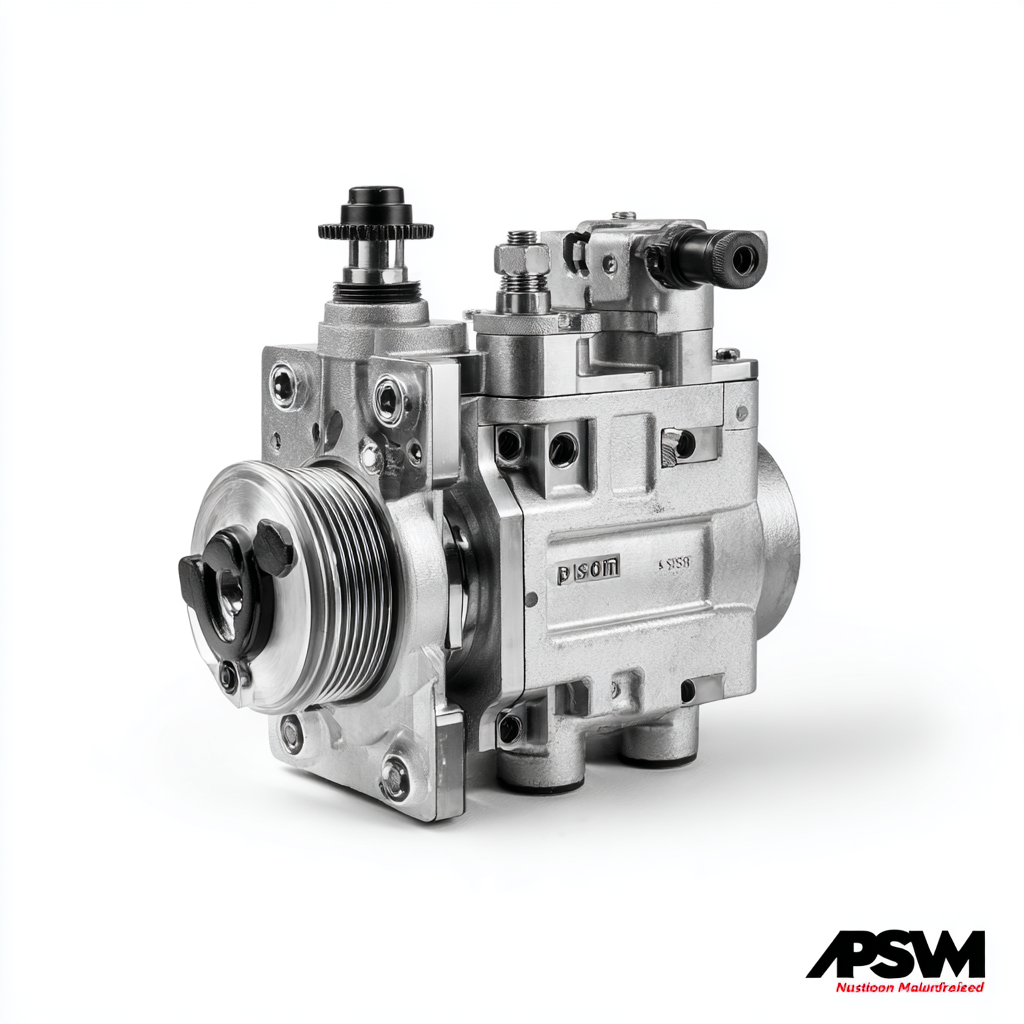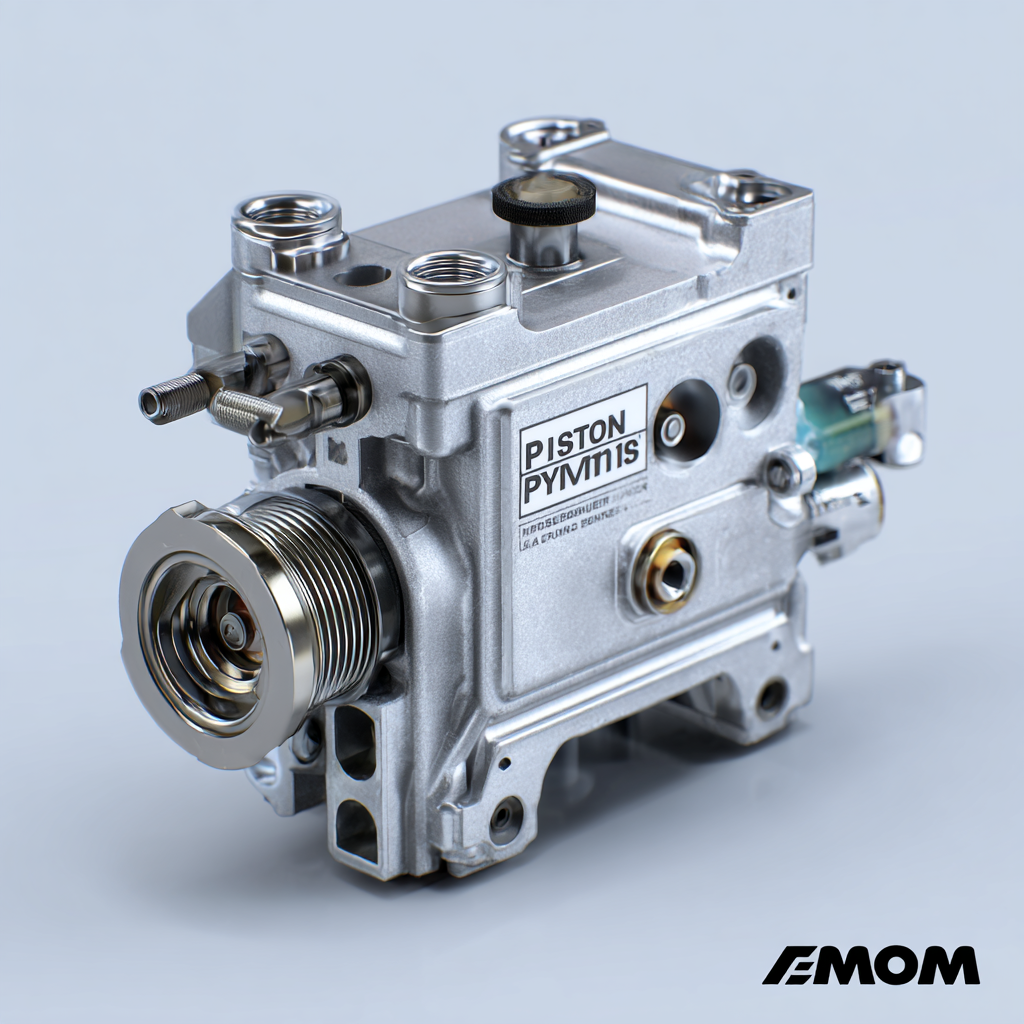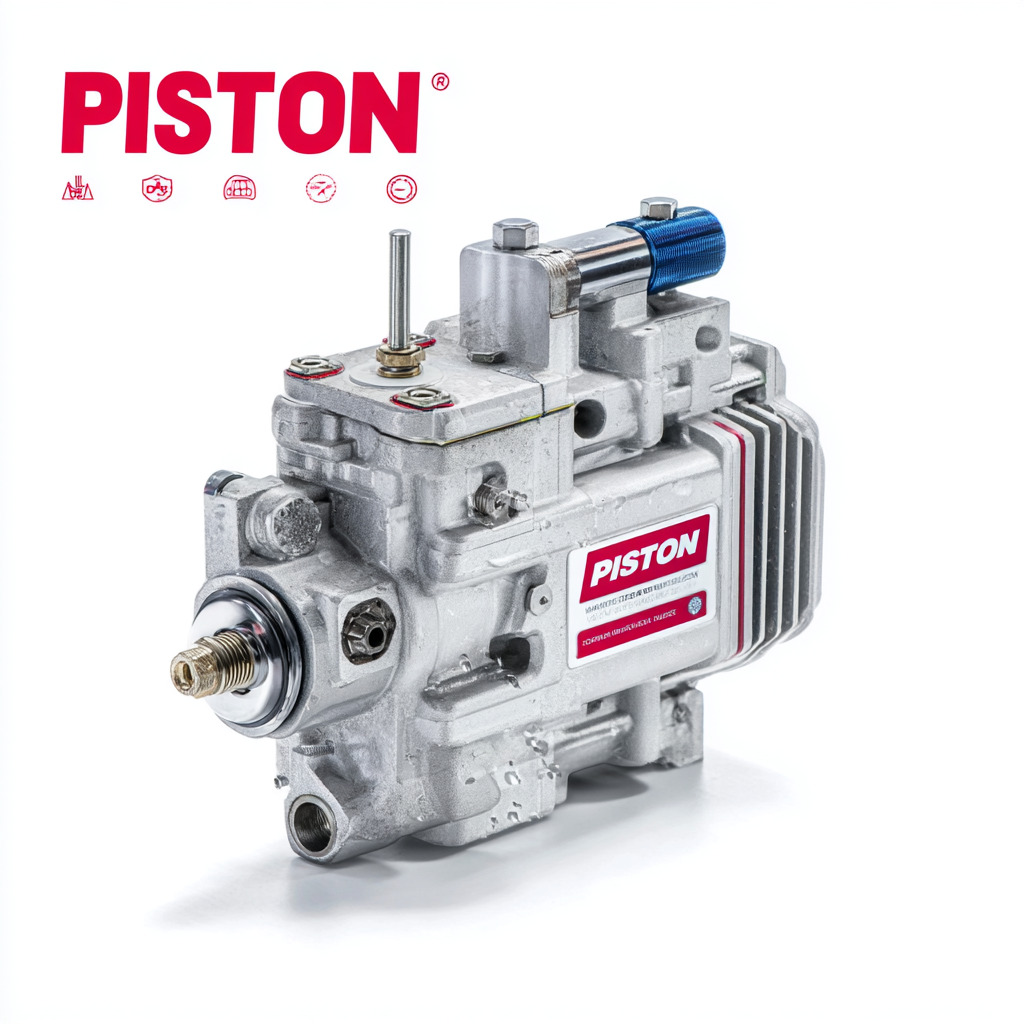

In the world of industrial machinery, selecting the right piston pump manufacturer is crucial for optimizing operational efficiency and enhancing productivity. Piston pumps, known for their ability to deliver precise and high-pressure fluid transfers, represent a significant segment of the global pump market, which is projected to reach $86 billion by 2027, according to market analysts. With numerous brands offering varying technologies and specifications, a comprehensive comparison of the best piston pump manufacturers becomes essential for businesses looking to invest wisely. This blog will delve into the top piston pump brands, evaluating their performance, reliability, and technological advancements, to help you make an informed decision that aligns with your operational needs.

When evaluating piston pump manufacturers, it’s essential to identify key features that can significantly impact performance and reliability. According to a recent report from Global Market Insights, the demand for high-efficiency piston pumps is projected to reach 1.5 million units by 2026, emphasizing the importance of selecting a manufacturer that meets industry standards. One crucial aspect is the quality of materials used in manufacturing; pumps made with durable components can greatly enhance longevity and reduce maintenance costs.
Tips: Always ask about materials and manufacturing processes. Look for manufacturers that provide detailed specifications and certifications for their pumps to ensure quality and performance.
Another vital feature to consider is the manufacturer’s reputation for customer support and service. Research indicates that about 70% of customers prioritize after-sales service when choosing equipment suppliers. This support can include warranties, availability of spare parts, and responsiveness to queries. A manufacturer that stands out in customer service can make a significant difference in your overall experience and operational efficiency.
Tips: Consider reaching out to current users of the manufacturer’s pumps. Their testimonials can provide insight into the manufacturer’s reliability and service quality.
When it comes to choosing the right piston pump, understanding the performance and reliability of different brands is critical. The market offers a variety of options, each with unique features and capabilities that cater to specific applications. For instance, some brands focus on durability and efficiency, ensuring that the pump not only performs well but also withstands rigorous use. Key performance indicators such as flow rate, pressure, and maintenance requirements can help you determine which brand aligns best with your needs.
Reliability is another crucial factor to consider. A dependable piston pump should deliver consistent results over time, minimizing downtime and maintenance costs. Just as in the testing of products like pump sprayers or air rifles, it's important to conduct thorough evaluations of piston pumps to understand their long-term performance in real-world conditions. Selecting a brand that has garnered excellent reviews for its reliability can significantly enhance the productivity of your operations, making an informed comparison essential in the decision-making process.
| Brand Type | Max Pressure (psi) | Flow Rate (GPM) | Efficiency (%) | Warranty (Years) | Customer Rating (out of 5) |
|---|---|---|---|---|---|
| Type A | 3000 | 10 | 85 | 5 | 4.5 |
| Type B | 3500 | 12 | 90 | 4 | 4.7 |
| Type C | 2800 | 8 | 80 | 3 | 4.0 |
| Type D | 4000 | 15 | 95 | 6 | 4.9 |
As the piston pump industry evolves, emerging manufacturing technologies are set to redefine efficiency and performance by 2025. One of the most significant trends is the integration of automation in production lines. With the advent of smart manufacturing, piston pump manufacturers can implement robotic systems for precise assembly and quality control. This not only reduces human error but also significantly accelerates production cycles, enabling companies to meet growing market demands more effectively.
Another notable advancement is the adoption of advanced materials and coatings that enhance the durability and efficiency of piston pumps. Innovations such as lightweight composites and wear-resistant coatings are being explored to improve pump longevity and reduce maintenance costs. Additionally, the use of additive manufacturing, or 3D printing, is revolutionizing the customization of piston pumps, allowing manufacturers to create specialized components tailored to specific applications with greater speed and design flexibility. As these technologies gain traction, the competition among leading piston pump brands will intensify, fostering a landscape that prioritizes innovation and customer-centric solutions.
This chart illustrates the projected advancements in technology adoption among piston pump manufacturers by the year 2025. The data indicates the percentage of manufacturers that are expected to implement various technologies in their production processes.
When considering the investment in a piston pump, the age-old dilemma of cost versus quality comes to the forefront. While it may be tempting to choose a lower-priced option, it's essential to examine what that price reduction might entail. Often, cheaper pumps can compromise on critical aspects such as reliability, efficiency, and lifespan. These factors can lead to increased operational costs down the line, which may outweigh the initial savings achieved at the point of purchase.
On the other hand, investing in a high-quality piston pump may require a larger upfront expenditure, but it provides long-term benefits. Premium brands typically offer superior materials and engineering, resulting in enhanced performance and durability. This not only minimizes maintenance needs but can also improve productivity due to fewer downtimes. Therefore, it’s crucial to assess each manufacturer’s reputation and product reviews to find a balance that aligns with your specific needs and budgetary constraints. In this way, a strategic investment today can yield significant returns in both efficiency and reliability for years to come.

In the modern manufacturing landscape, sustainability practices have become a critical factor in the selection of piston pump brands. Leading manufacturers are not only focusing on performance and efficiency but also on minimizing their environmental impact. This includes using sustainable materials, reducing waste through efficient production processes, and ensuring that their pumps are designed for energy efficiency. When comparing brands, it’s essential to look beyond the specifications and consider their commitment to sustainability.
Tips: When researching manufacturers, check for certifications such as ISO 14001, which indicates a commitment to environmental management. Additionally, consider reaching out to the company to inquire about their sustainability initiatives and how they are integrated into product development.
Another key aspect is the innovation in design that supports sustainable practices. Many top brands are incorporating advanced technologies to reduce resource consumption and enhance the lifespan of their products. By investing in manufacturers that prioritize sustainable design, you not only contribute to a greener future but also benefit from more reliable and efficient pumps.
Tips: Look for companies that offer comprehensive information about their sustainability efforts on their websites. Reading customer reviews can also provide insights into how these practices are reflected in the long-term performance of their products.
